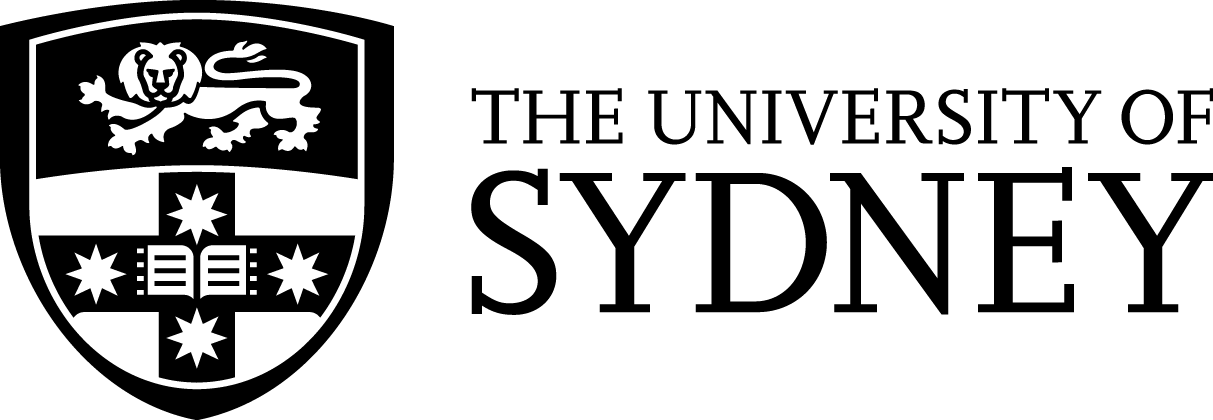Art, Power, Inequality
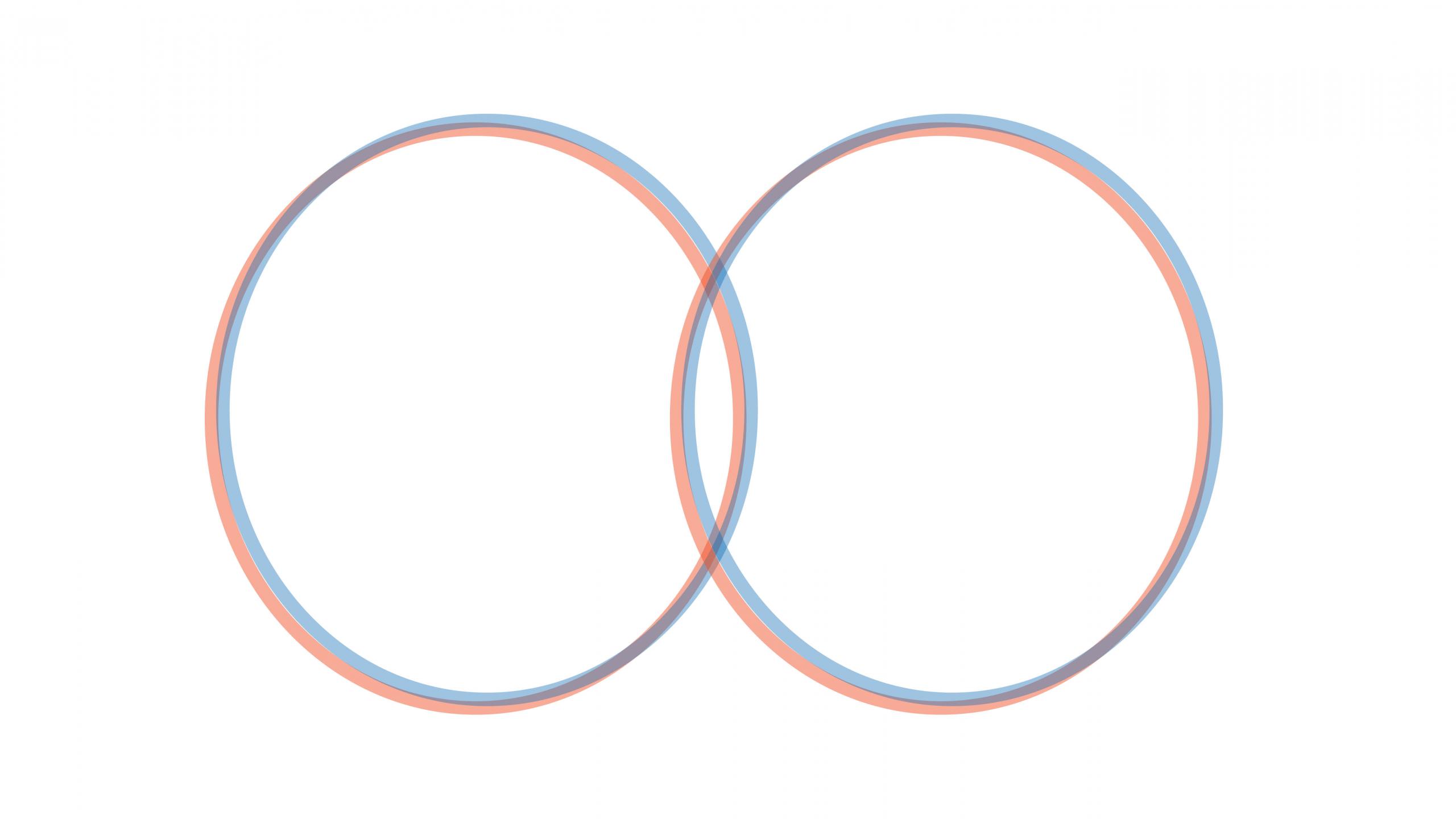
A workshop on the concepts and theories of power available to art thinkers today.
We cannot understand art without also understanding the systems of power that underpin it. Yet what languages are available to describe these systems?
This workshop explored the concepts and theories of power available to scholars of art today. What are the dominant concepts and theories, and what new ones are emerging to supplement or replace them? What new stories do they tell us about art, and what new forms of art making do they make visible?
Throughout the 20th century, the forces underpinning art have been theorised in terms of gender, race, class and sexuality and by concepts (mostly derived from the Euro-American humanities tradition) such as institution and critique, fields, discourses, apparatuses, assemblages and infrastructures.
In the 21st century, these frameworks have been both extended in new directions and critiqued. This is due, in part, to the escalating economic and social inequalities shaping social spheres, the art they produce and the forms of its circulation. These frameworks are also now subject to revision under the ongoing force of Indigenous activism, scholarship and art which both critiques them, and offers new systems of knowledge.
Co-presented by the Institute for Culture and Society at Western Sydney University and the Power Institute at the University of Sydney. Convened by Tony Bennett and Nick Croggon.
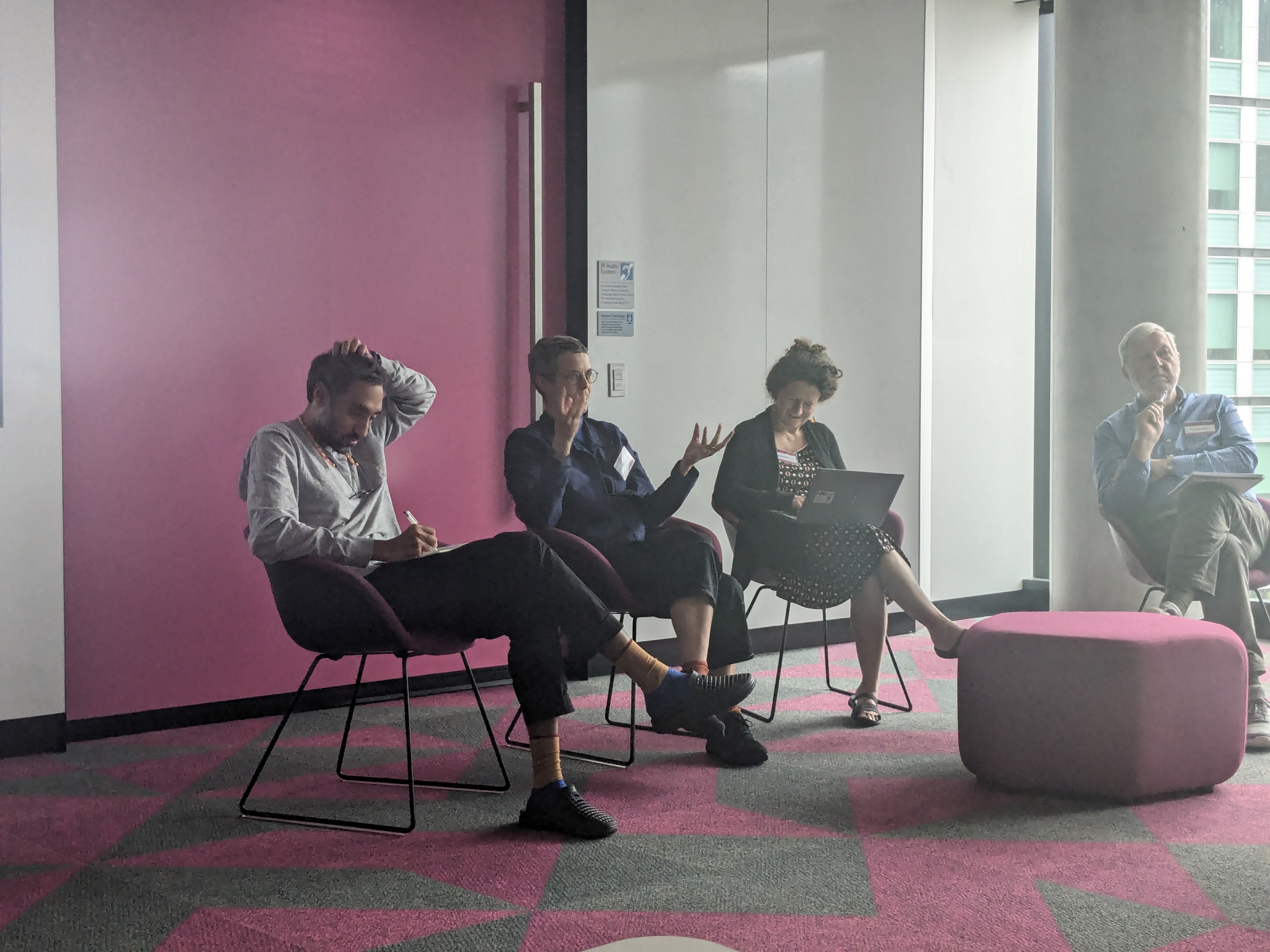
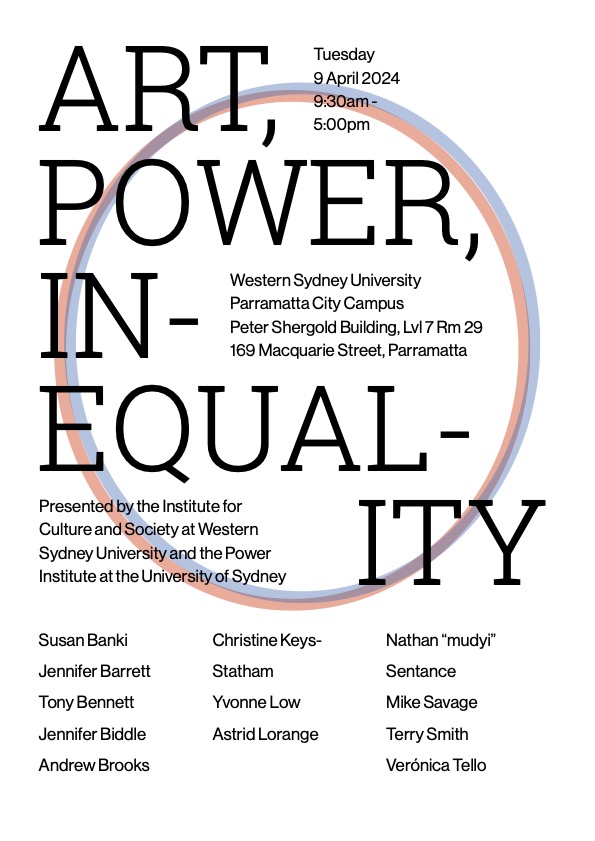
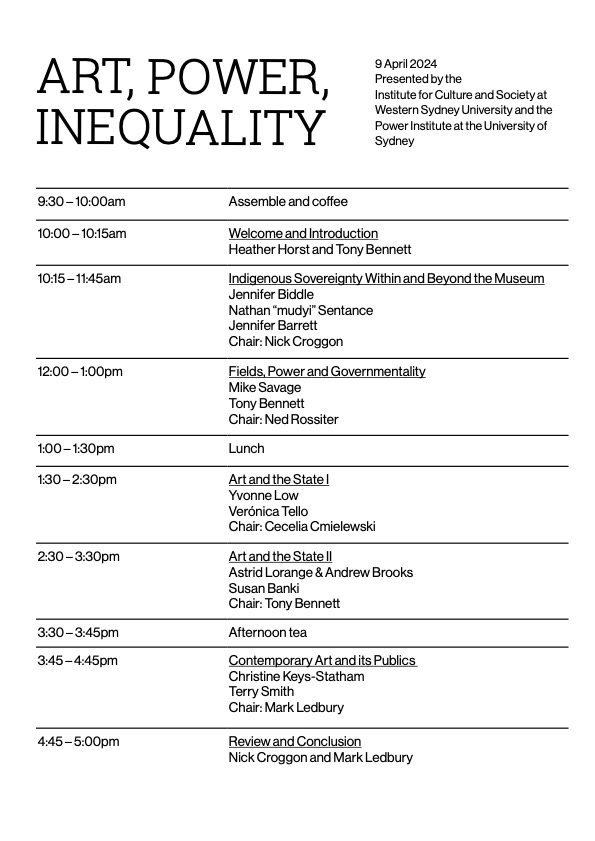
Recordings
People

Susan Banki
Susan Banki studies the political, institutional, and social contexts that explain the roots of and solutions to human rights violations and social justice abuses. In particular, she is interested in the ways that questions of sovereignty, transnationalism, and citizenship/membership have shaped our responses to conflict and injustice, particularly examining institutions such as the international refugee regime, diasporas, and the humanitarian system. Susan's focus is in the Asia-Pacific region, where she has conducted extensive field research in Thailand, Myanmar/Burma, Cambodia, Nepal, Bangladesh and Japan on refugee/migrant protection, statelessness and border control. Her current projects include: the work of diasporas in responding to acute crises at home; humanitarian responses to complex displacement contexts; and the role of creative arts in transnational activism.
Jennifer Barrett
Jennifer Barrett is a descendent of the Dunghutti people of the mid-north coast of New South Wales. She is a professor of Museum Studies and Pro Vice-Chancellor, Indigenous (Academic) since 2021 at the University of Sydney. She is the author of Museums and the Public Sphere (Wiley Blackwell, 2012); Australian Artists and the Contemporary Museum (Routledge 2016, with Jacqueline Millner); and “Museums, Human Rights, and Universalism Reconsidered,” in The International Handbooks of Museum Studies: Museum Theory (Wiley and Sons, 2015). She co-edited with Avril Alba, and A. Dirk Moses The Holocaust and Human Rights Transnational Perspectives on Contemporary Memorial Museums, published by University of Pennsylvania Press Philadelphia in 2024. She regularly collaborates with the museum, heritage and collections sectors and was Chair of the Board, Museums and Galleries NSW between 2015 and 2019. Between 2000 and 2011 she was Director of Museum Studies at the University of Sydney.
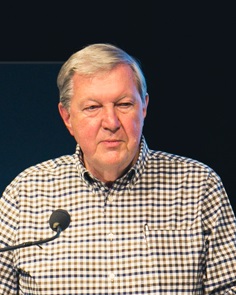
Tony Bennett
Tony Bennett is an Emeritus Professor in Social and Cultural Theory in the Institute for Culture and Society at Western Sydney University, and Honorary Professor in the Humanities Research Centre and Department of Sociology at the Australian National University. He is a Fellow of the Australian Academy of the Humanities and of the Academy of the Social Sciences in the UK. His research spans the fields of cultural studies, cultural sociology, and museum studies. Recent publications include Museums, Power, Knowledge (2018), Fields, Capitals, Habitus: Australian Culture, Social Divisions and Inequalities (2021, co-editor), The Australian Art Field: Practices, Policies, Institutions (2020, co-editor), Assembling and Governing Habits (co-editor), and Habit’s Pathways: Repetition, Power, Conduct (2023).
Jennifer Biddle
Jennifer L Biddle is Professor, Art & Design, UNSW Sydney. She is founding director of emLAB (the Ethnographic Media Lab) and 2023 Gough Whitlam and Malcom Fraser Chair in Australian Studies at Harvard University. Former Australian Research Council (ARC) Future Fellow, she has worked with northern Warlpiri for three decades and more recently, in transnational collaboration on sensory new media. Her monograph Remote Avant-Garde: Aboriginal Art under Occupation (Duke University Press) models new and emergent desert-based aesthetics as arts of survival. She is currently co-writing a book on the Lajamanu Warlpiri festival Milpirri.
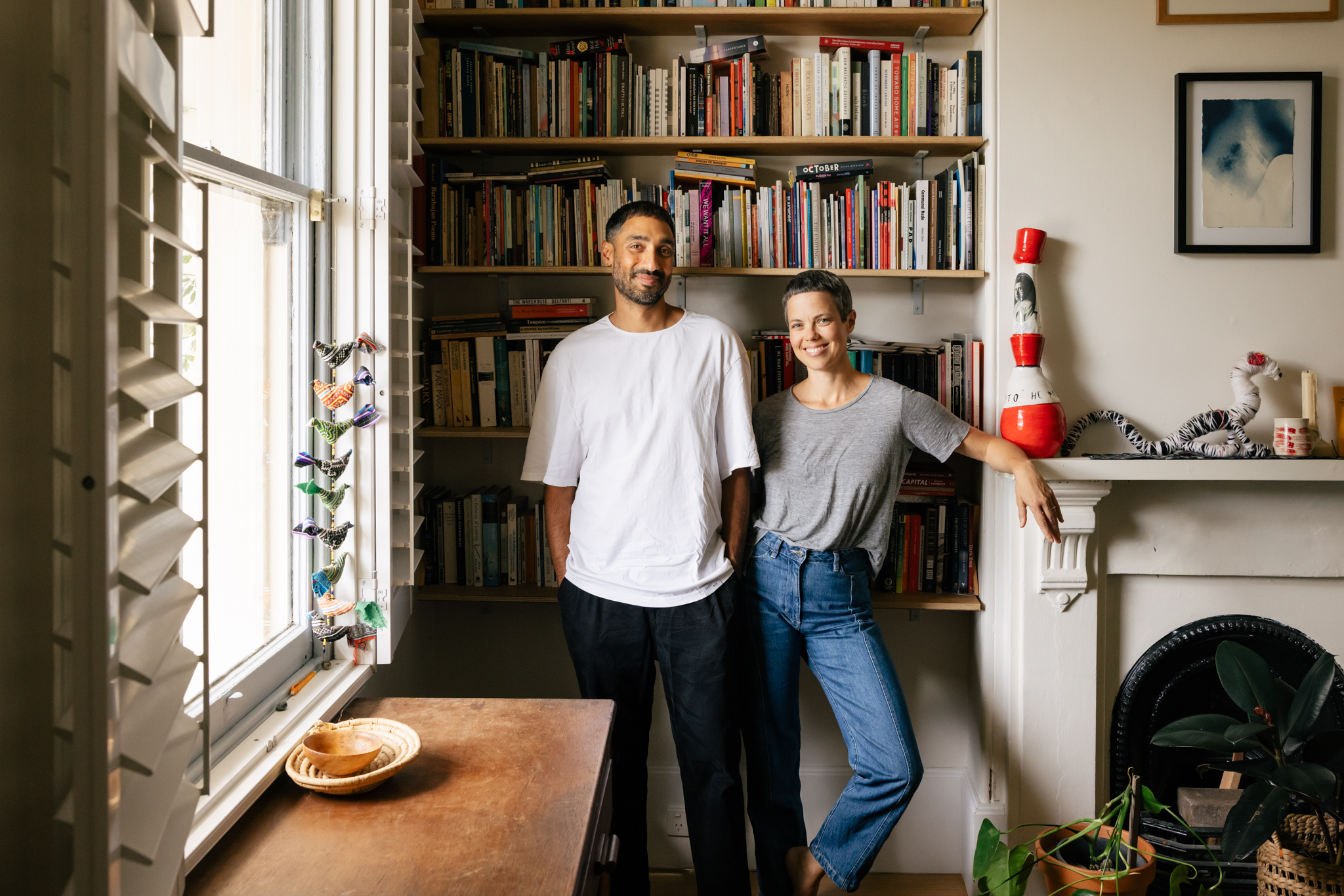
Andrew Brooks and Astrid Lorange
Dr Andrew Brooks is a Lecturer in the School of Arts & Media at UNSW whose work investigates infrastructural inequalities and circulatory struggles, policing and abolition, race and anti-racism. He is a co-director of the UNSW Media Futures Hub, a researcher in the UNSW Centre for Criminology, Law and Justice, a founding member of the Infrastructural Inequalities research network, a co-editor of the publishing collective Rosa Press, and an affiliate investigator with the ARC Centre of Excellence for Automated Decision-Making and Society. With Astrid Lorange, he is one half of the critical art collective Snack Syndicate. Their book of essays on art and politics, Homework, was published by Discipline in 2021.
Dr Astrid Lorange is a Senior Lecturer in the School of Art & Design at UNSW Sydney, where she is a researcher in the Media Futures Hub and the Centre for Criminology, Law and Justice. She is one-half of the critical art collective Snack Syndicate, whose book of essays Homework was published by Discipline in 2021, a co-editor at Rosa Press, and a founding member of the Infrastructural Inequalities research network. Her scholarship investigates the ways that cultural texts – art, literature, media, policy – emerge in relation to disciplinary structures (gender and sexuality; settler colonialism and the nation-state; law; labour; bureaucracy; race/racism) as forms of critique and as documents of resistance.
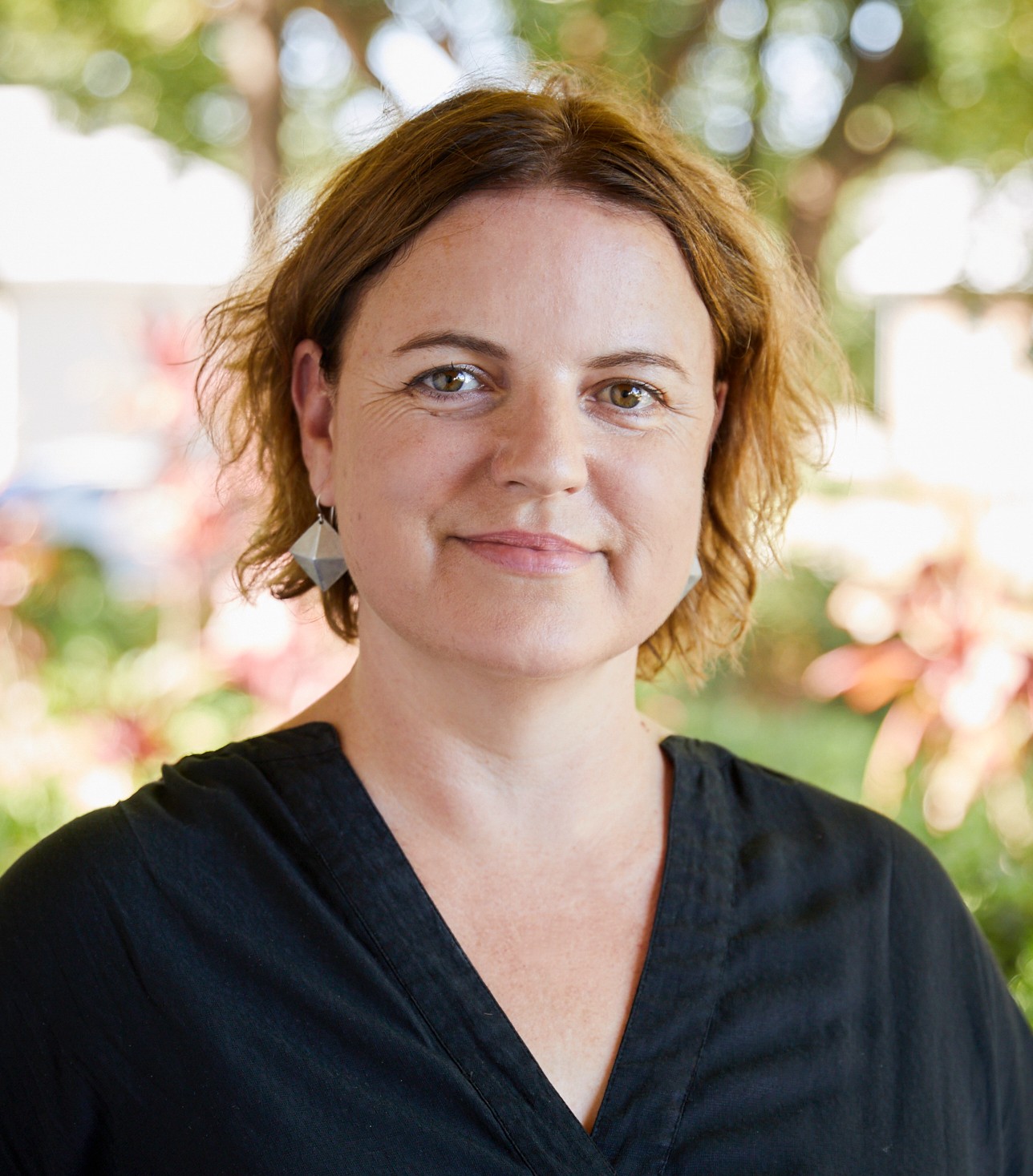
Christine Keys-Statham
Christiane Keys-Statham is a curator, cultural strategist and project manager for artists, with a particular focus on public art and the environment. She lives and works on Gadigal, Wangal and Dharug land, and acknowledges Elders, past and present. She also holds deep respect for Aboriginal and Torres Strait Islander peoples’ continuing connection to Country. For two decades, Christiane has worked as a curator and project manager of public art projects, temporary and permanent, and has also worked as a cultural researcher and strategist. She has worked in Europe, Central Asia and Australia in collaboration with artists, scientists, professionals and diverse communities. Christiane is currently a PhD Candidate at the Institute for Culture and Society at Western Sydney University, researching the intersections of cultural and ecological infrastructures in Parramatta/Burramatta, and the relationships between different forms of cultural infrastructures, such as public art and the forthcoming Powerhouse Parramatta.
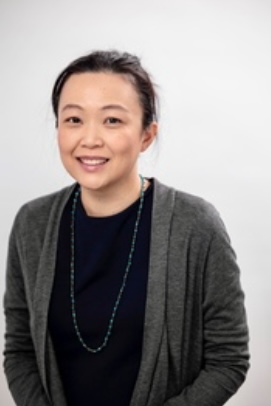
Yvonne Low
Yvonne Low is an art historian in Asian Art. She is a lecturer at the University of Sydney, teaching Art History and Curating in the Undergraduate and Postgraduate programs. She researches on modern and contemporary Southeast Asian art, with an interest in Chinese diasporic cultures, women’s history, and digital methods. As editorial committee to Southeast of Now Journal (NUS Press), Yvonne is committed to advancing scholarship in the region. She is currently an advisory committee member for The Flow of History (AWARE/Asia Art Archive), The Womanifesto Way Digital Anthology (Power Institute, DFAT, 4A) and co-developer of digital tool, Artists Trajectories Map.
Mike Savage
Prof. Michael Savage is a British sociologist who has played a significant role in using cultural analysis to re-invigorate debates about social class and inequality. His work (with Tony Bennett and others) mapping cultural capital in the UK led to the book Culture, Class, Distinction and also inspired the Great British Class Survey which caused huge public, as well as academic, debate in the UK when it was published in 2013. His recent book The Return of Inequality was published by Harvard UP in 2021. Since 2014 he has been the Martin White Professor of Sociology at the London School of Economics and Political Science (LSE). In addition to being Head of the Sociology Department between 2013 – 2016, he also held the position of Director of LSE's International Inequalities Institute between 2015 – 2020.
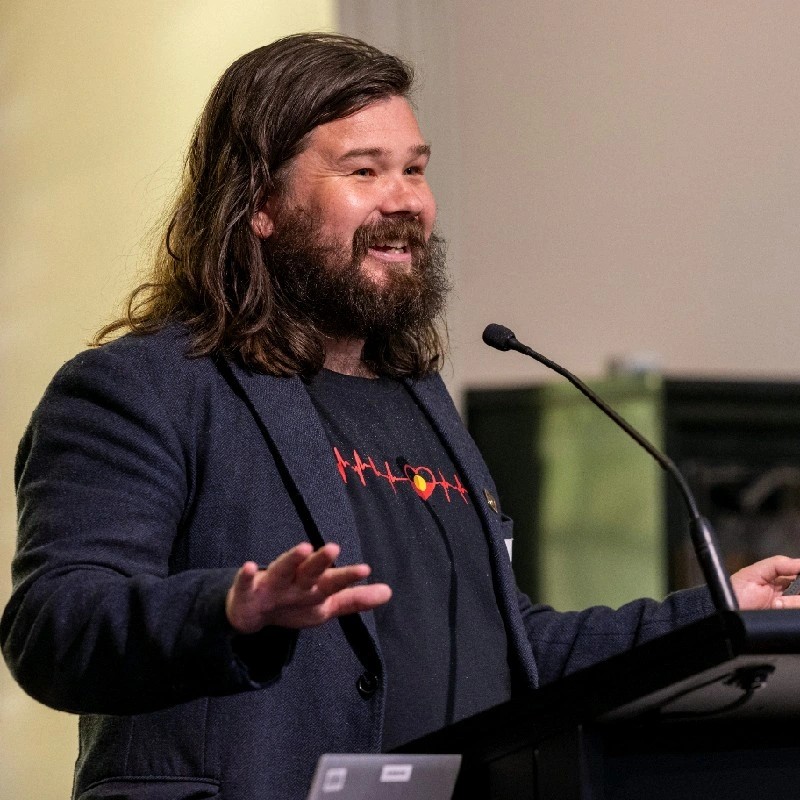
Nathan "mudyi" Sentance
Nathan “mudyi” Sentance is a Wiradjuri librarian and museum practitioner who grew up on Darkinjung Country. Nathan currently works at the Powerhouse Museum as Head of Collections, First Nations and writes about history, critical librarianship and critical museology from a First Nations perspective. His writing has been previously published in the Guardian, British Art Studies, Cordite Poetry, and Sydney Review of Books and on his own blog The Archival Decolonist.
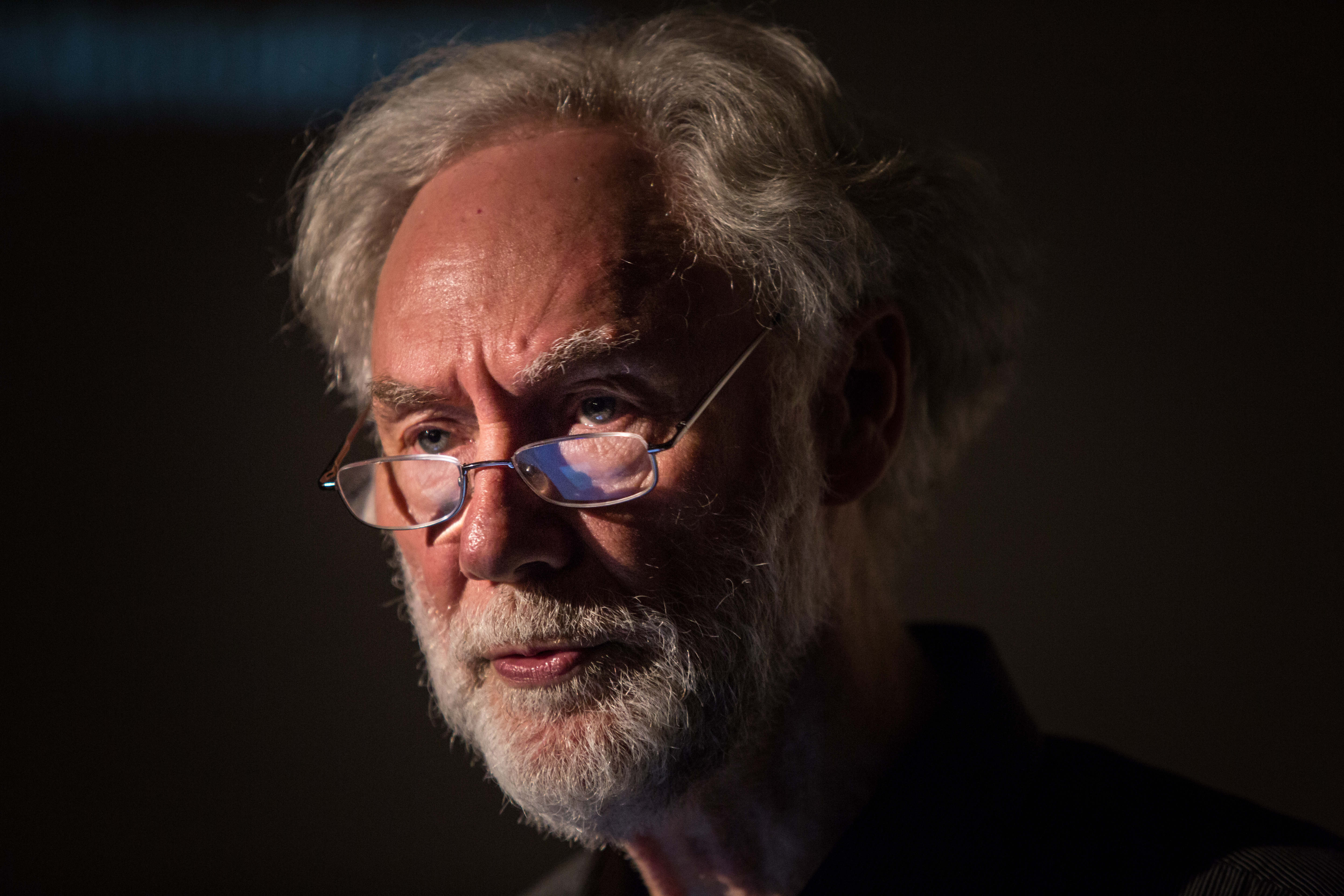
Terry Smith
Terry Smith is Emeritus Professor of Art History at the University of Sydney, and Andrew W. Mellon Emeritus Professor of Contemporary Art History and Theory in the Department of the History of Art and Architecture at the University of Pittsburgh. He is Professor in the Division of Philosophy, Art and Critical Thought at the European Graduate School and Faculty at Large, Curatorial Program, School of Visual Arts, New York. He is a Fellow of the Australian Academy of the Humanities. In 2010 he was named the Australia Council Visual Arts Laureate and won the Mather Award for art criticism conferred by the College Art Association (USA). In 2022, CAA conferred on him its Distinguished Teacher of Art History Award. He is author of Making the Modern: Industry, Art and Design in America (University of Chicago Press, 1993); Transformations in Australian Art (Craftsman House, Sydney, 2002); The Architecture of Aftermath (University of Chicago Press, 2006), What is Contemporary Art? (University of Chicago Press, 2009), Contemporary Art: World Currents (Laurence King and Pearson/Prentice-Hall, 2011), Thinking Contemporary Curating (Independent Curators International, New York, 2012), Talking Contemporary Curating (Independent Curators International, 2015), The Contemporary Composition (Sternberg Press, 2016), One and Five Ideas: On Conceptual Art and Conceptualism (Duke University Press, 2107), Art to come: Histories of Contemporary Art (Duke University Press, 2019), Curating the Complex & The Open Strike (Sternberg and MIT Press, 2021), and Iconomy: Towards a Political Economy of Images (Anthem Press, 2022). A founding Board member of the Museum of Contemporary Art Australia, he served on the board of the Andy Warhol Museum, Pittsburgh, and is Board Member Emeritus of the Carnegie Museum of Art, Pittsburgh. He is also a member of the Advisory Board of the Biennial Foundation, New York. See www.terryesmith.net/web/about.
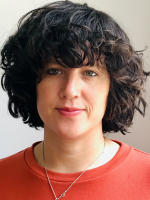
Verónica Tello
Verónica Tello is an art historian, writer, editor, teacher, and curator. Her research focuses on transnational art histories — and their archives — in and out of Australia, Chile, the Pacific, and Latin America. Tello is the lead researcher on the Australian Research Council project Parallel Structures (2021–2024), which experiments with being beside or beside museum structures in collaboration with emerging diasporic and Indigenous writers and curators from the global south. In 2016, she published her first book, Counter-Memorial Aesthetics: Refugee Histories and the Politics of Contemporary Art (Bloomsbury). Her second book, Future Souths: Dialogues on Art, Place and History, is a collaborative attempt at writing a multi-vocal, global contemporary art history (Third Text Publications and Discipline, 2023). She is currently finalising a manuscript on exhibition history of Margins and Institutions: Art in Chile Since 1973 (1986), co-curated by Juan Dávila and Nelly Richard. Her writings have appeared in Third Text, Memory Studies, Afterall, and Artforum. She is a Sydney editor of Memo Review and editor-in-chief of the Australian and New Zealand Journal of Art. Tello is a senior lecturer in contemporary art history and theory at UNSW Art & Design.
